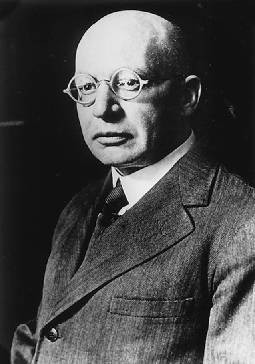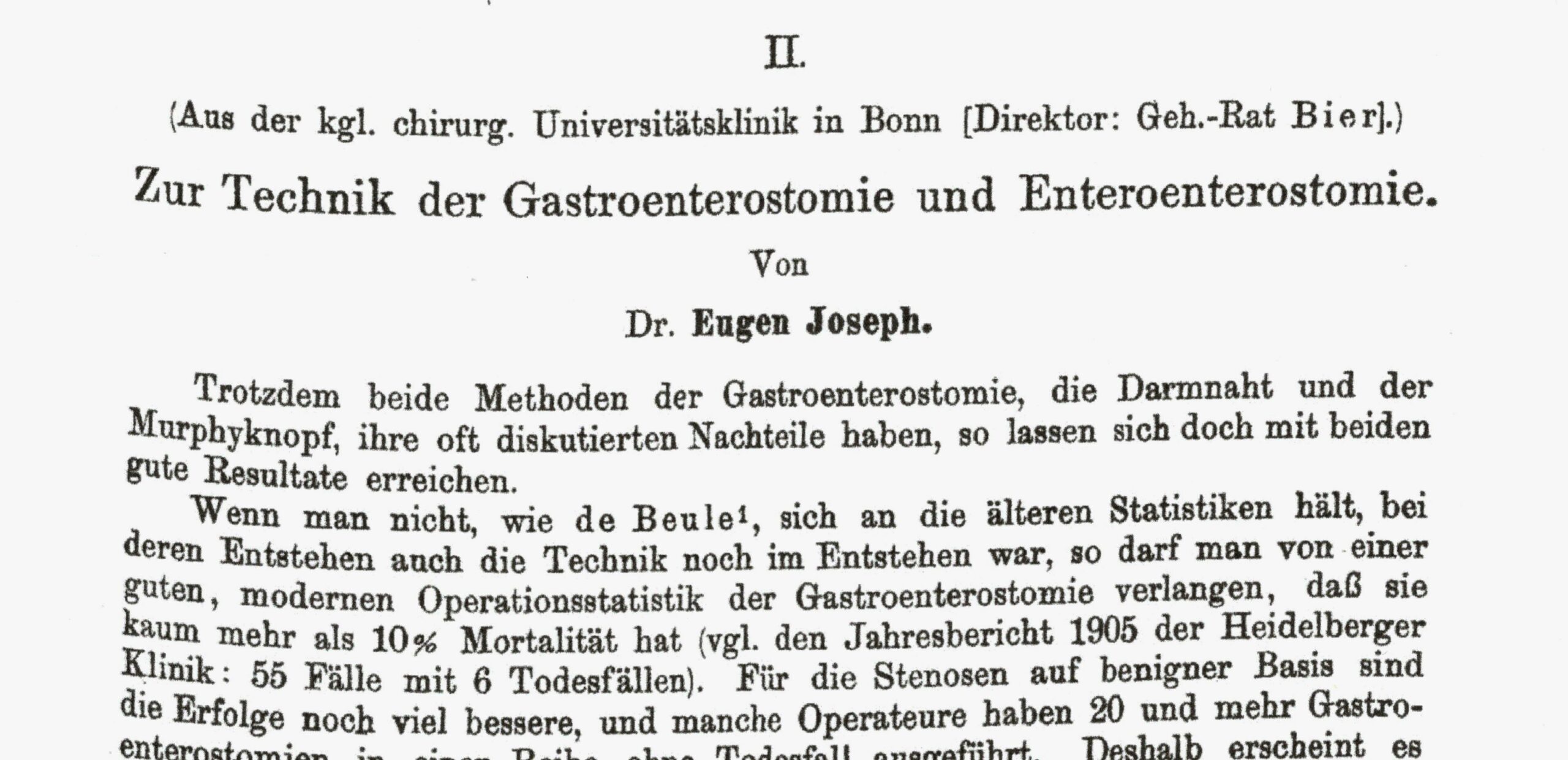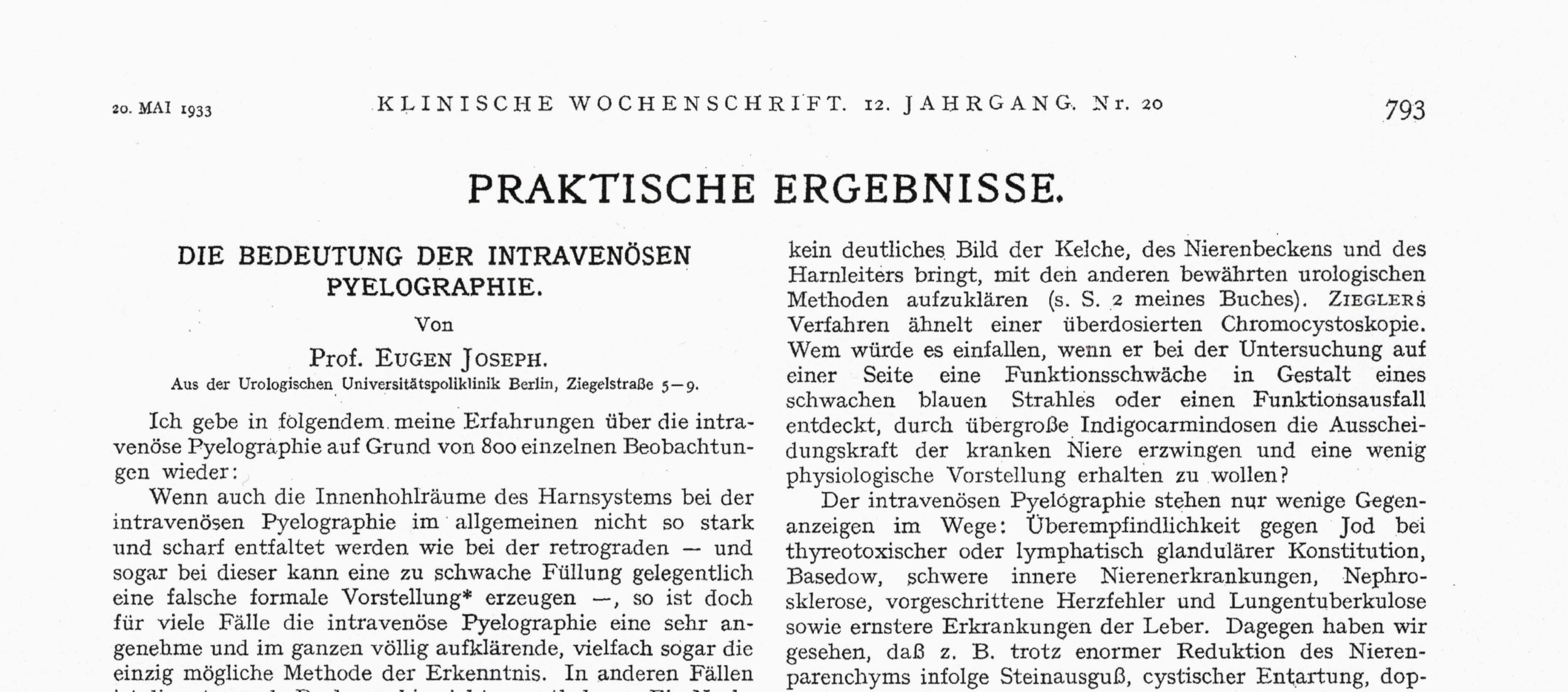Prof. Dr. med. Eugen Joseph
- Bad Landeck/Lądek Zdrój, Lower Silesia, Poland, 26.04.1879
- Berlin, 24.12.1933
- Member since 1929
- Berlin
- Surgeon and urologist
Eugen Joseph was born in former Lower Silesia in 1879 as the son of the general practitioner Dr. Ludwig Joseph. His family moved to Berlin in 1890. Eugen Joseph graduated from the Wilhelmsgymnasium in 1897.
Education and Places of Work
Eugen Joseph studied medicine in Greifswald, Breslau/Wrocław, Berlin, and in Heidelberg for the last four semesters. He passed the state examination in Heidelberg in 1902 and received his doctorate with the thesis “Die Morphologie des Blutes bei der akuten und chronischen Osteomyelitis”.
Joseph completed his further training in surgery at the Surgical University Clinic in Heidelberg with Vincenz Czerny and, from 1904, with August Bier, Surgical University Clinic in Bonn, who was operating at the St. Johannes Hospital at the time. Joseph moved to the Berlin Surgical University Clinic in Ziegelstrasse together with Bier in 1907 and habilitated in surgery at the Friedrich-Wilhelms University in Berlin in 1910. He was appointed associate professor (extraordinarius) at the Berlin University in 1921.
Joseph specialised in urological surgery from early on, researching and publishing extensively on urological diagnostic issues and, among other things, on the therapy of bladder tumours using thermocoagulation. He was one of the co-founders of the new field of urology. He published on chromocystoscopy together with Friedrich Voelcker in 1904. He was appointed head of the Department of Urology at the University Polyclinic Institute for Surgery in Ziegelstrasse in 1913. Joseph opened a surgical-urological private clinic in the former Hygiea Sanatorium in Berlin’s Martin Luther Strasse in 1921. He remained associated with the Berlin Urological University Polyclinic in Ziegelstrasse and lectured in his field at the University of Berlin.
Joseph was co-editor of the Journal of Urology. In addition to his field of specialisation, Joseph published on questions of abdominal surgery and dealt with basic questions of inflammation and infections. Together with August Bier he edited the “Lehrbuch der Hyperämiebehandlung akuter chirurgischer Infektionen” (Leipzig 1911). Joseph’s last paper on the “Bedeutung der intravenösen Pyelographie” (Klinische Wochenschrift 1933; 12: 793-799) was published in May 1933.
His students included Werner Staehler (1908-1984) and Simon Perlmann (1898 – 1949). Staehler, who introduced a new resectoscope for transurethral electroresection, went on to become the first medical director of the department of urology at the Eberhard Karls University in Tübingen. Perlmann, who had worked with Joseph for many years, emigrated to Poland in 1934 and established the new specialist discipline as head of a special ward for urology at the University Surgical Clinic in Vilnius. Perlmann later made it to Palestine.
1933
Joseph’s teaching licence at the University of Berlin was revoked on 4 September 1933 (§ 3 Law for the Restoration of the Professional Civil Service of 7 April 1933, revocation of teaching licence due to “non-Aryan descent”). Joseph was deeply affected by the disenfranchisement and humiliation of the Jews after the beginning of the Nazi dictatorship.
Eugen Joseph committed suicide in Berlin on 24 December 1933 at the age of 54. He was buried at the Jewish cemetery in Berlin-Weissensee. His wife Lilly Joseph and their 27-year-old daughter Marianne fled Germany, first to Switzerland and later to France. From there they were deported to Auschwitz in December 1943, where they were murdered. The second daughter of the Josephs managed to escape to Palestine.
Sources and Further Reading
Sources

